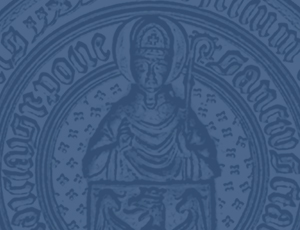Head of the PhD study programme:
dr hab. Szymon Godlewski, prof. UJphone: +48 12 664 4605
szymon.godlewski@uj.edu.pl
PhD study programme Office:
mgr Ewa Lelekphone: +48 12 664 4894
ewa.lelek@uj.edu.pl
 Web Content Display
Web Content Display
Web Content Display
Web Content Display
 Breadcrumb
Breadcrumb
Breadcrumb
Breadcrumb
 Web Content Display
Web Content Display
Web Content Display
Web Content Display
 Web Content Display
Web Content Display
Web Content Display
Web Content Display
The PhD programme in physics involves a combination of courses, the completion of an original, scholarly piece of research that is then presented as a PhD dissertation and the academic internship mainly focused on academic teaching skills. The courses available within the PhD programme in physics are in form of lectures, classes, seminars, tutorials, computer labs and others. They cover various fields in physics and PhD student together with supervisor decide which offered courses are most compatible with needs and interests of given student and his individual research programme. Total minimum number of 40 ECTS points have to be collected during the programme, which allows our PhD students to focus on their scientific research.
The research activities of the department are broad and cover practically all fields of physics, both in theory and experiment. For a more detailed description of research areas, see the website of the Faculty of Physics, Astronomy and Applied Computer Science of the JU. Specifically, have a look at the Institute Departments of the M.Smoluchowski Institute of Physics and Departments of the Institute of Theoretical Physics to find various departments and research groups.
The M.Smoluchowski Institute of Physics conducts, mainly experimental, research into physics of:
In the Institute of Theoretical Physics research in various branches of modern theoretical physics are carried out:
Interdisciplinary research are also conducted in the areas of cognitive and brain sciences, quantum computing, artificial intelligence and machine learning.
Apart an experienced scientific stuff, a large international group of younger scientists is involved in the research: postdoctoral fellows and PhD students. Interdisciplinary and inter-departmental research activities also are possible. We also conduct extensive international collaborations what brings opportunities to visit our collaborators in their home institutions. These make that Ph.D studies in physics at the Jagiellonian University are a perfect start to the development of an international scientific career.
 Web Content Display
Web Content Display
Web Content Display
Web Content Display


